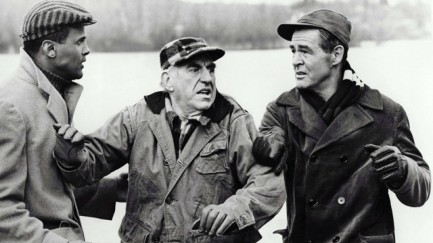| Femmes Fatales | Jul 7 2019 |

Gloria Grahame's three-step plan for dealing with a problem—aim, fire, assess.
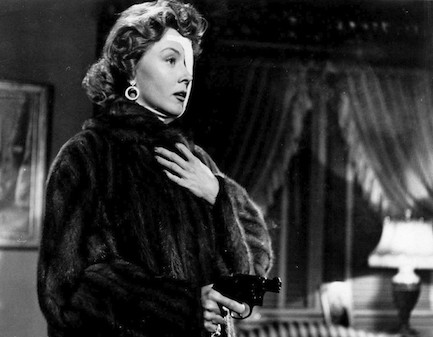
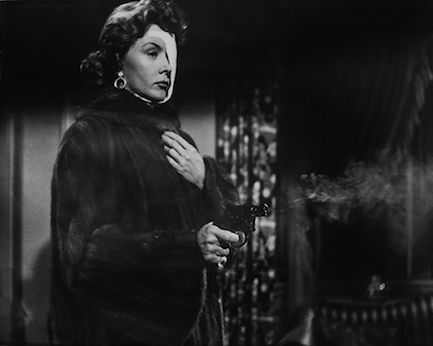
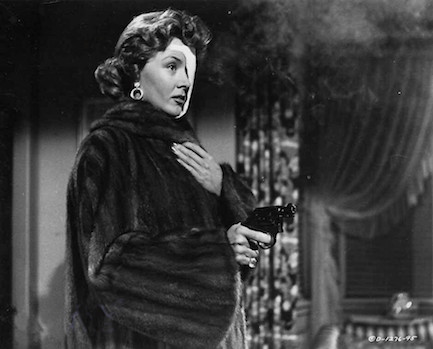
These photos of U.S. actress Gloria Grahame come from one of our favorite old movies, the film noir The Big Heat, in which she starred with Glenn Ford. How many good films was Grahame in? Plenty, including The Bad and the Beautiful, Crossfire, the amazing In a Lonely Place, Human Desire, The Glass Wall, and Odds Against Tomorrow. Outside the drama/noir genres, she was also in It's a Wonderful Life, which is one of the most watched U.S. films of all time, and Oklahoma!. In The Big Heat she plays the prototypical film noir bad girl who wants to be good but has a hard time getting there. We won't say more. Just check it out. The photo is from 1953.
| Vintage Pulp | Feb 2 2019 |

They'll have to choose what they hate more—their circumstances or each other.
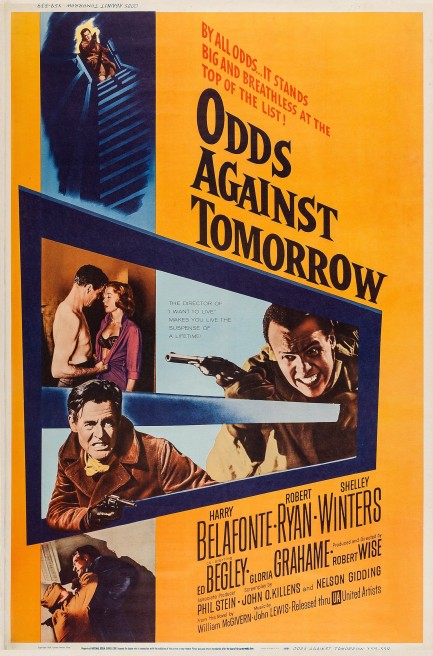
The Noir City Film Festival rolls on with Robert Wise's 1959 thriller Odds Against Tomorrow. Harry Belafonte and Robert Ryan star in a heist story that brings a touch of underground jazz and an edge of racial tension to the narrative mix. It would play nicely on a double bill with In the Heat of the Night, but fits at Noir City too. In fact it might be the darkest film noir on the bill. Belafonte is in debt to mobsters and Ryan is broke and feels emasculated being supported by his girlfriend. When ex-cop Ed Begley brings the two together for a lucrative robbery both see it as the only answer. The robbery has the same problems associated with any heist, with the added complication of Ryan's racism.
Some reviews of this film try to suggest equivalence between these two characters. Uh, no. Belafonte's separatist leanings and distrust of whites in a society that is unfair toward him is a precaution; Ryan's separatist leanings and distrust of blacks in a society that favors him is oppression. This is a basic sociological truth as it relates to power in any society, and it's irksome that some reviewers miss this. Belafonte responds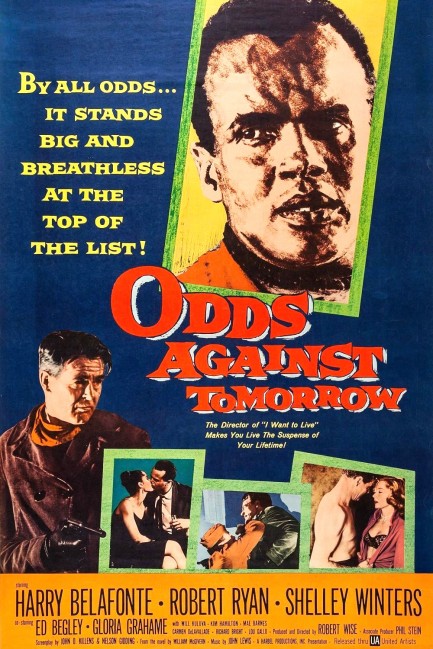 to aggressive hate with reactive hate. The expectation that he possess superhuman forbearance while his oppressor can be merely human removes context and wrongly demands that everybody behave identically despite their different circumstances and different locations within the spectrum of power.
to aggressive hate with reactive hate. The expectation that he possess superhuman forbearance while his oppressor can be merely human removes context and wrongly demands that everybody behave identically despite their different circumstances and different locations within the spectrum of power.
Much of the movie examines Belafonte's and Ryan's respective attitudes along these lines, with the heist coming in a flurry of action at the end. The robbery is basically foolproof, but only if the powder keg of racial resentment doesn't blow it sky high. The points Wise is making here, which originate with William P. McGivern's novel, are simply these: cooperate and succeed, or fight and fail. All Ryan needs to do is extend the hand of respect, but because of his prejudice he fails again and again, which hardens Belafonte's already suspicious attitudes. Who do these two hate more—their circumstances or each other? That's what Odds Against Tomorrow asks, about its characters, and America. Noir City festivalgoers will leave the cinema talking about this one.
 to aggressive hate with reactive hate. The expectation that he possess superhuman forbearance while his oppressor can be merely human removes context and wrongly demands that everybody behave identically despite their different circumstances and different locations within the spectrum of power.
to aggressive hate with reactive hate. The expectation that he possess superhuman forbearance while his oppressor can be merely human removes context and wrongly demands that everybody behave identically despite their different circumstances and different locations within the spectrum of power.Much of the movie examines Belafonte's and Ryan's respective attitudes along these lines, with the heist coming in a flurry of action at the end. The robbery is basically foolproof, but only if the powder keg of racial resentment doesn't blow it sky high. The points Wise is making here, which originate with William P. McGivern's novel, are simply these: cooperate and succeed, or fight and fail. All Ryan needs to do is extend the hand of respect, but because of his prejudice he fails again and again, which hardens Belafonte's already suspicious attitudes. Who do these two hate more—their circumstances or each other? That's what Odds Against Tomorrow asks, about its characters, and America. Noir City festivalgoers will leave the cinema talking about this one.
